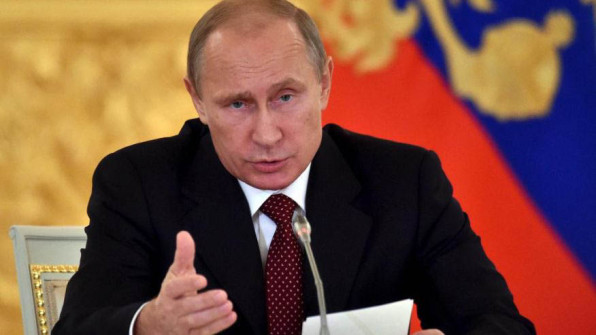President Vladimir Putin topped Forbes’ most powerful for a third consecutive year. Courtesy of AP
Recently, Forbes came out with its annual list of “73 of the World’s Most Powerful People.” It came as no surprise that the list was filled with various heads of state and other influencers of world politics and economics, along with famous philanthropists and entrepreneurs. Essentially, the amount of power each person on the list has was determined by four factors. The first consideration was the power he or she has over people, meaning the larger the group, the more power he or she has. The second consideration was based on each person’s financial resources, which meant different things for different people, like how much his or her businesses were worth or how high his or her country’s GDP is. The third consideration was in how many areas his or her power was exerted; for Forbes, one area is not enough. The last consideration assessed how much the candidates actually used their power.
You may be wondering who Forbes listed as the most powerful person in the world, and perhaps to your surprise the Russian President Vladimir Putin. How could someone like President Putin who is viewed by America and Europe negatively, be number one on the list? According to Forbes it is because Putin is able to get away with what he wants. His approval rating in Russia is at 89 percent, even though Russia is in a recession. He has also helped increase Russian power abroad. However, should Putin’s negative image influence the amount of his worldwide power? It does not affect his approval domestically, but perhaps he is not as powerful as he could be considering how other nations, particularly the U.S. thinks of Putin.
Therefore, there has been some social media backlash against naming Putin the world’s most powerful person since he is not typically considered the world’s best person. But, according to Forbes, that is not what it is measuring. Putin has been named the most powerful person for the third year in a row.
Another common complaint on social media includes the lack of diversity on the list. For instance, there are only two black men, and no black women on the list. President Obama, who was number three on the list, and the other was the richest man in Africa, Aliko Dangote, who came in at 71 on the list. It also should be noted that there are only nine women on the list out of 73 in total. However, the second most powerful person on the list is Angela Merkel, the chancellor of Germany. According to Forbes she is the backbone of the European Union, as she is known for being the decision-maker for certain European policies.
It is important to think about this list in regards to its cultural relevance. Most people know that these people have a lot of power, but is the way in which it is measured equal? For instance, should gender and ethnicity be considered when taking into account the individual’s amount of power? Forbes wrote that these rankings considered people from all walks of life. However, it appears that there are only three main areas that those listed come from: Asia, the Middle East and the West, including Europe and America. Therefore, perhaps this list is relevant because in the coming years, we will be able to see if there is an increase in diversity on the list.
Overall, there are some surprising additions. Donald Trump made it to number 72 on the list; even Forbes wanted to know if Trump should have been on the list at all. Perhaps another purpose of this list is to start a discussion on who should or should not be included on the list and the problems that the formula used to judge people’s power might have. It could also start a discussion on the type of people who are on this list. Should there actually be more diversity, or are these really just the most powerful people? However, it is clear that there are problems with the list and there still needs to be strides made to include more women, people of color and people of different backgrounds.





